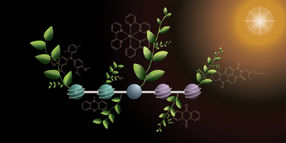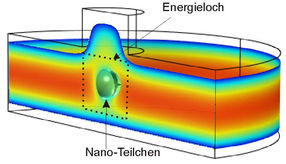Super-sensitive detection of asbestos in soil samples
Advertisement
A new method of sample preparation, developed by a group of US scientists, promises to increase the sensitivity of asbestos analysis 100-fold, to the point where it can be used to detect the substance in soil.
Although at a low level, asbestos contamination in soil is of potential concern. If such soil is disturbed by human activity or weather conditions, asbestos can be released into the air, where it can become an on-going source of exposure and a risk to public health.
Current methods of asbestos detection are geared towards the analysis of building materials and are not sensitive enough to be applied to soil, but this new sample preparation method promises sensitivity down to levels as low as 0.002% by weight.
The technique uses a fluidised bed asbestos segregator (FBAS), which employs air elutriation to separate asbestos particles from heavier material and deposit them on a filter. This filter can then be analysed using microscopy techniques, such as TEM. The FBAS unit itself is compact and portable, lending itself to use in a standard laboratory fume hood.
Most read news
Original publication
Organizations
Other news from the department science

Get the chemical industry in your inbox
By submitting this form you agree that LUMITOS AG will send you the newsletter(s) selected above by email. Your data will not be passed on to third parties. Your data will be stored and processed in accordance with our data protection regulations. LUMITOS may contact you by email for the purpose of advertising or market and opinion surveys. You can revoke your consent at any time without giving reasons to LUMITOS AG, Ernst-Augustin-Str. 2, 12489 Berlin, Germany or by e-mail at revoke@lumitos.com with effect for the future. In addition, each email contains a link to unsubscribe from the corresponding newsletter.































































